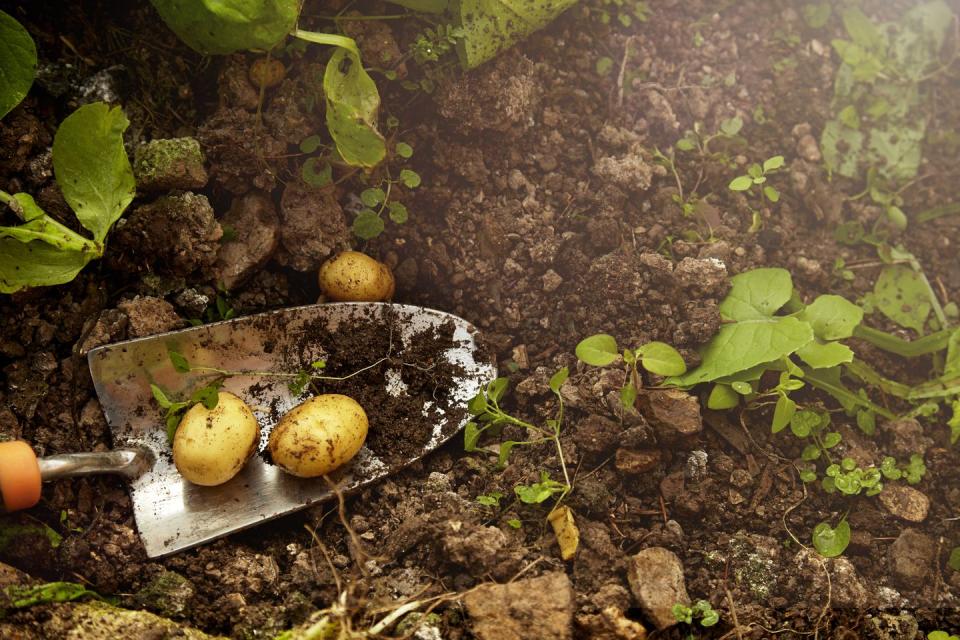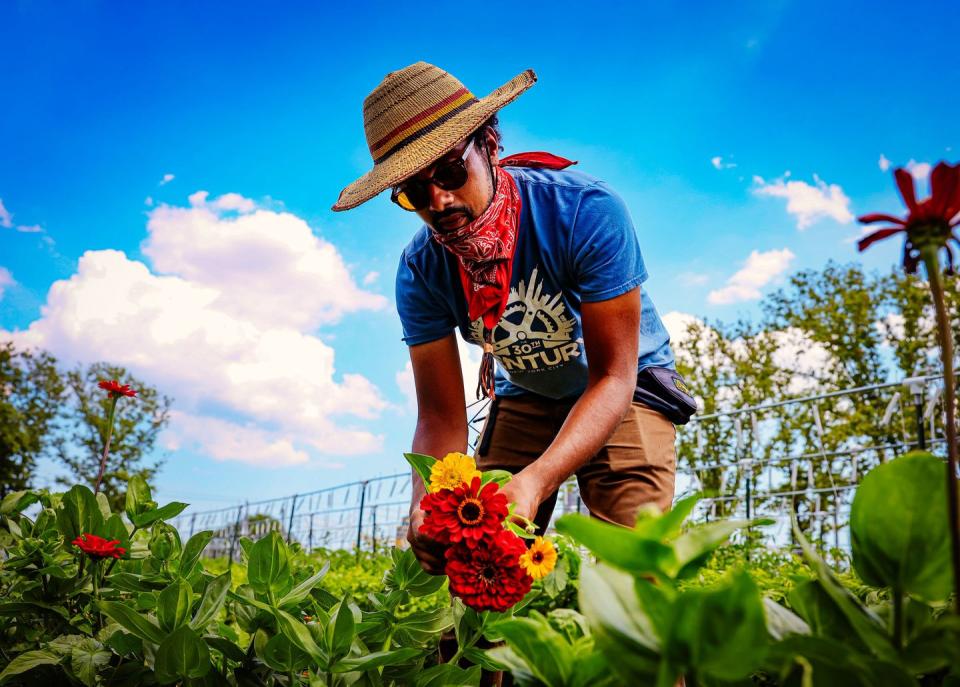I Believe Good Food Is a Right. So I'm Teaching Kids to Farm.
Today, with the help of my team of youth farmers, we packed up 216 bunches of red Russian kale and scallions for families in need. That’s nothing compared to what a larger-scale farm can do, but I’d argue that the work we’re doing is more important.
Red Hook Farms takes up just an acre and a half of public park space in Brooklyn. (Central Park, by comparison, is 843 acres.) We have three growing seasons here—spring, summer, fall—and during each season we have about 20 farmers, largely Black teenagers and youth, who work the land.
And I mean work the land. They prepare the soil. They plant the seeds. They water. They watch their seedlings grow. They weed, by hand. And eventually they harvest, package, and distribute what they’ve grown to Red Hook residents, many of whom live at or below the poverty line.
I’m an urban farmer, but more broadly I’m an educator that empowers youth to see farming and food as a form of social justice. It’s funny, because I used to hate working in the garden.
When I was growing up, my mom used me as free labor to help her tend to our plot of land in Glen Cove, New York. She grew mostly ornamentals, with a small vegetable garden, but she would spend entire weekends out there getting dirty.
One year, she spent a whole summer creating a pond. I watched her dig the hole, lay the liner, fill the pool, and then landscape it with care. And that’s when things locked for me: Gardening is a magic trick. You’re working with the forces of nature to do something magical.

When I went to college for environmental studies at Stony Brook University, no one in my program looked like me. I couldn’t point to someone in the history of farming who was Black to follow their lead. People called me “nature boy” and “hippie,” and my first farming experiences were in the Hamptons on Long Island, where I felt out of place in overwhelmingly white neighborhoods.
But I pushed, even though my parents wanted me to pursue a profession with more stability, and I carried the magic through my first farming jobs, my work at Edible Schoolyard NYC, and eventually Red Hook Initiative.
COVID-19 and the Black Lives Matter demonstrations haven’t changed our mission at Red Hook. They’ve solidified it. Good food is a right. Farming is political—especially to farm on a small scale, in urban areas, and organically. It’s a political act because for so many years the kind of farming our U. S. government supports has been the complete opposite of those things: large, rural, and nonorganic.

We at Red Hook are creating a model that strikes counter to that traditional model. Small farms are the future of equitable farming—small farms like the acre and a half I work with my small, dedicated, and extremely passionate team of eager and curious youth farmers.
Regardless of your race, as a teenager there’s not much you can feel like you have an impact on, where you can literally see your mark. But then you do something like package up a box of red Russian kale that you planted from a seed, and tended to, and grew into something that can sustain and nourish a family in need. Then you, too, witness that magic.
You Might Also Like

